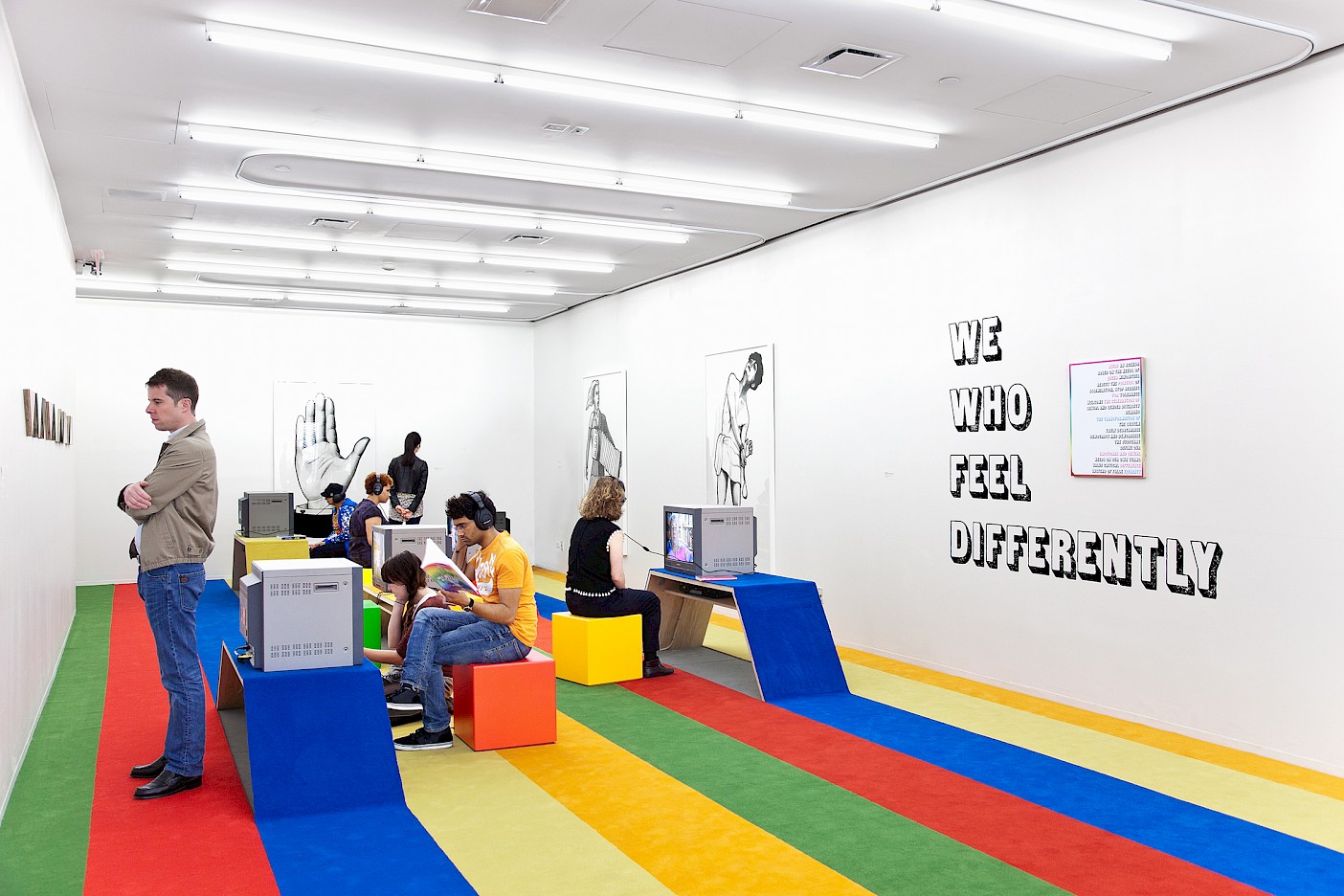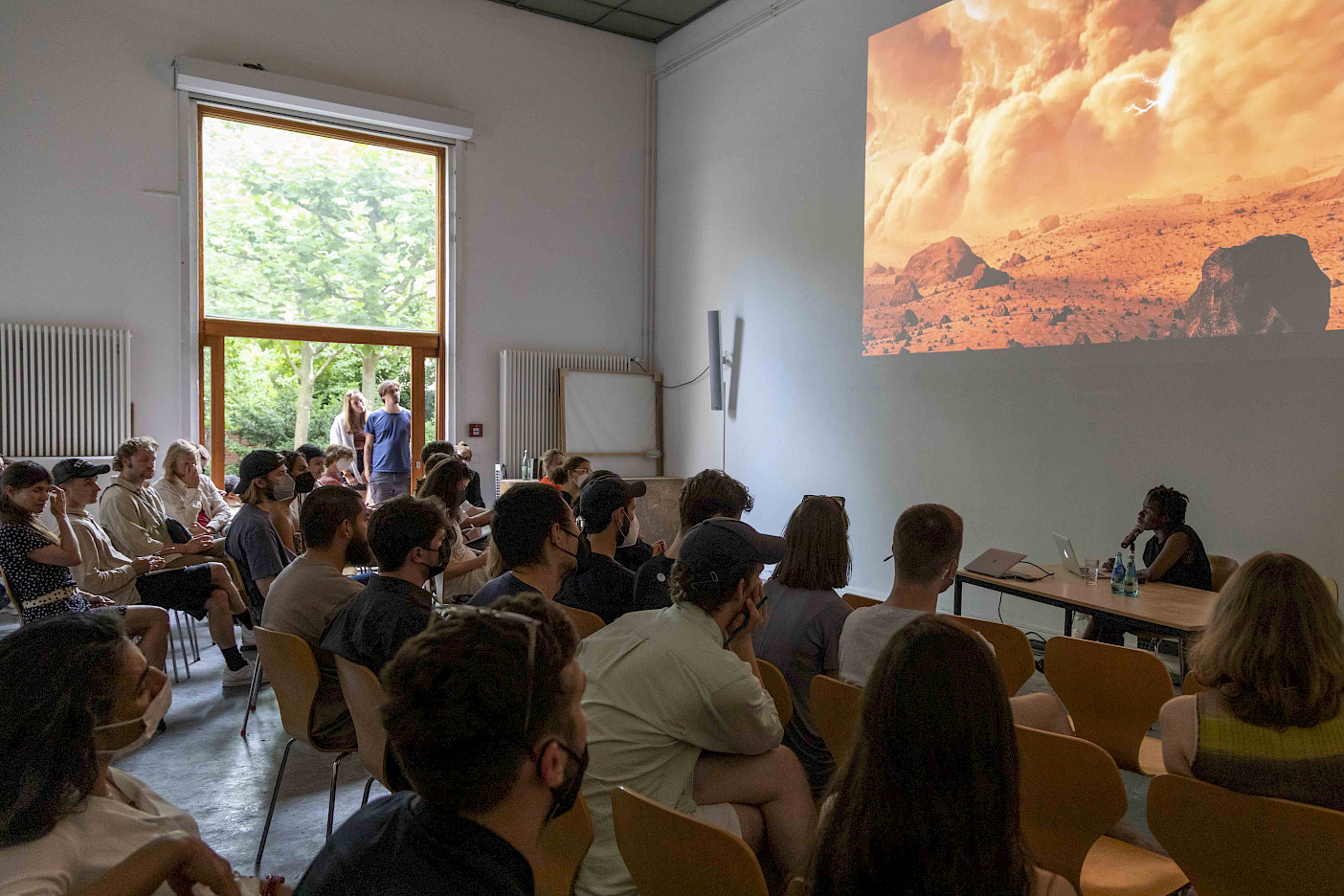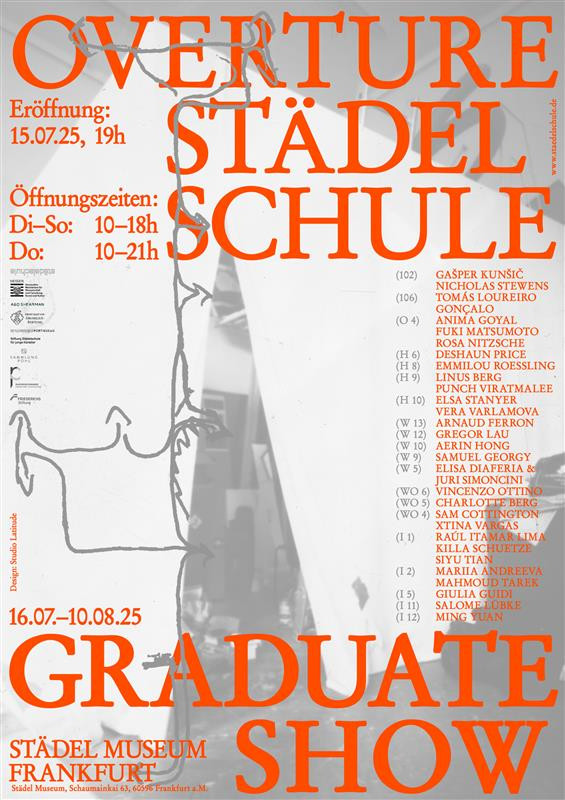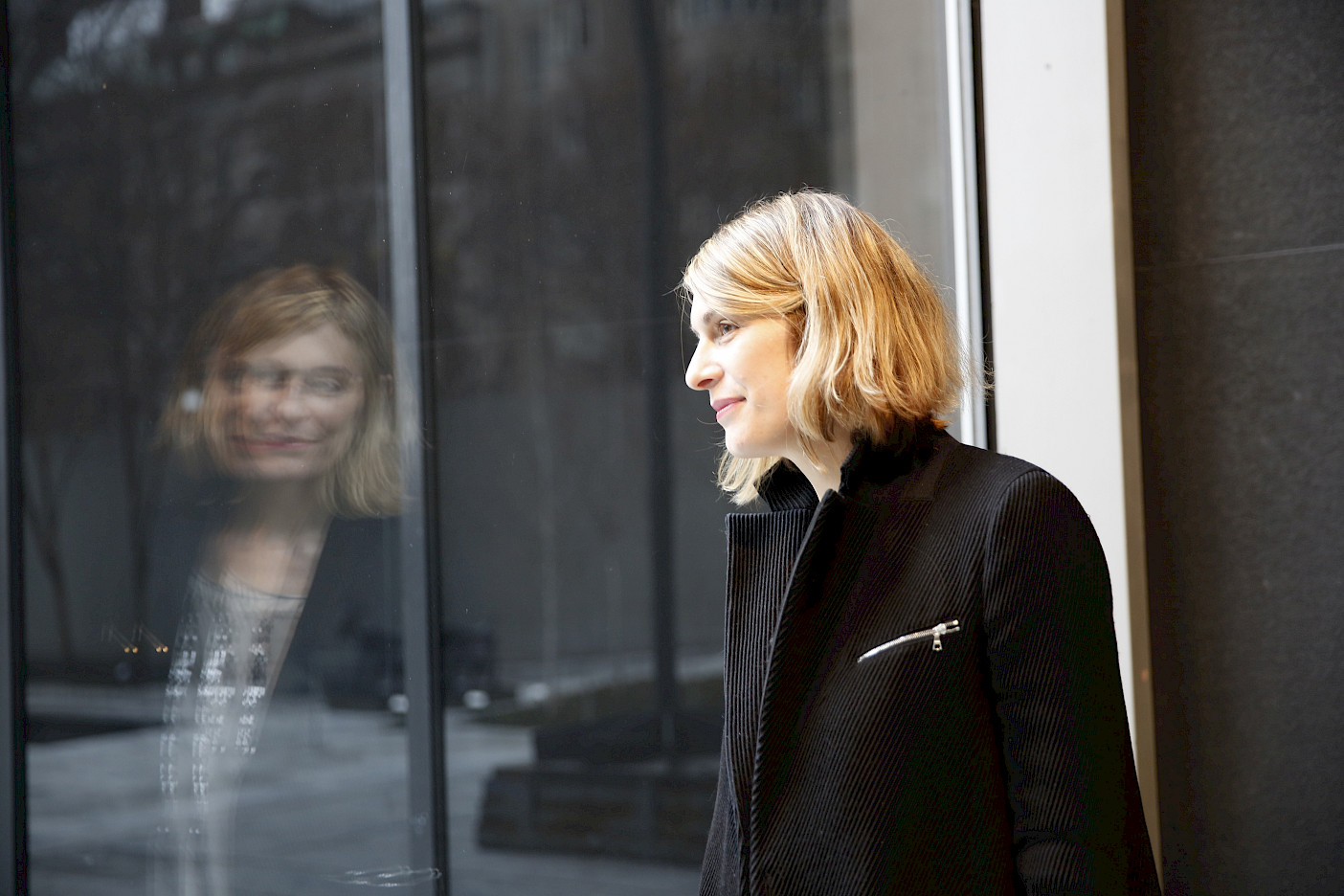Städel Museum, Schaumainkai 63, 60596 Frankfurt am Main
Opening hours: Tue–Sun, 10am–6pm; Thu, 10am–9pm
Opening: Tuesday, July 15, 2025, 7pm–10pm
Today
Ongoing
Summer Semester 2025
Information, 22 April – 25 July 2025
Upcoming
Overture – Graduate Exhibition
Exhibition, 15 July – 10 August 2025, 19:00
Ana Janevski: Looping, Relaying and Echoing. Three Curatorial Strategies
Lecture, 16 July 2025, 19:00
Tanya Lukin Linklater: _structural_flex_
Lecture, 8 July 2025, 19:00
Florence Jung: Doing nothing?
Lecture, 24 June 2025, 19:00
Rabih Mroué: Shot/Counter Shot. Rethinking the Reverse
Lecture, 17 June 2025, 19:00
Adir Jan & Emrah Gökmen: On the Shores of the Munzur, on the Shores of the Murat
Concert, 12 June 2025, 20:00
Miloš Trakilović: Love Songs & War Machines
Lecture, 10 June 2025, 19:00
Anna Roberta Goetz: 36. Bienal de São Paulo. Not All Travellers Walk Roads / Of Humanity as Practice
Lecture, 3 June 2025, 19:00
Jimmy Robert
Lecture, 27 May 2025, 19:00
Klein: No Degree, No Budget, No Problem
Lecture (20.5.) Concert (21.5.), 20 – 21 May 2025
Julian Irlinger: Reanimation and Reconstruction
Lecture, 13 May 2025, 19:00
İmran Ayata & Bülent Kullukçu: Songs of Gastarbeiter
Music Lecture, 8 May 2025, 19:00
Enzo Camacho & Ami Lien: Langit Lupa (Heaven Earth)
Screening (5.5.) Lecture (6.5.), 5 – 6 May 2025, 19:00
Helen Marten: Animal Hours
Lecture, 29 April 2025, 19:00
Application: Master of Arts Program in CURATORIAL AND CRITICAL STUDIES
Application, 10 April – 31 May 2025
Semester Break Spring 2025
Information, 14 February – 21 April 2025
Water Cooler Talks 2025
Event, 8 – 9 February 2025
Rundgang 2025
Exhibition, 7 – 9 February 2025, 10:00–20:00
Trisha Donnelly
Lecture, 30 January 2025, 19:00
Kerstin Brätsch: Parasite Painting
Lecture, 28 January 2025, 19:00
Emma Enderby: Curating in and out of Place
Lecture, 14 January 2025, 19:00

Carlos Motta: We Who Feel Differently. On Queer Politics and Representation, Past and Present
During his lecture We Who Feel Differently: On Queer Politics and Representation, Past and Present, Carlos Motta will present a selection of recent multidisciplinary art projects, which document the social conditions and political struggles of sexual, gender, and ethnic minority communities. Manifested in a variety of mediums – video, installation, sculpture, drawing, web-based projects, performance, and symposia – his work aim to challenge dominant and normative discourses through visibility and self-representation. Carlos Motta is a historian of untold narratives and an archivist of repressed histories and is committed to in-depth research on the struggles of post-colonial subjects and societies.
The recent survey exhibition Carlos Motta: Formas de libertad was presented at the Museo de Arte Moderno de Medellín (MAMM), Colombia (2017) and later traveled to Matucana 100, Santiago, Chile (2018). Other museum solo exhibitions include Stedelijk Museum, Amsterdam (2017); Pérez Art Museum (PAMM), Miami (2016); Museo de Arte Latinoamericano the Buenos Aires (2016); PinchukArtCentre, Kiev (2015); Tate Modern, London (2013). Carlos Motta participated in 32nd Bienal de São Paulo (2016); Göteborg International Biennial of Contemporary Art (2015); and the X Gwangju Biennale (2014). His films have been screened at the Rotterdam Film Festival (2016, 2010); Toronto International Film Festival (2013); and Internationale Kurzfilmtage Winterthur (2016); among many others. Motta won the Vilcek Foundation’s Prize for Creative Promise (2017); the PinchukArtCentre’s Future Generation Art Prize (2014); and a Guggenheim Fellowship (2008).
The lecture is part of the lecture program We Who feel Differently, borrowing its name from one of Carlos Motta's projects. The program is organised by Gardenia, a reading group among Städelschule students, and will continue on November 6 with Daniel Blanca-Gubbay and on December 11 with the art historian Bojana Kunst.
Gardenia was formed last summer: Meeting outdoors we started discussing José Muñoz' Disidentifications (1999) and also organized a screening of The Salt Mines (dirs. Carlos Aparicio and Susana Aikin, 1990). During our gatherings a couple of ideas started to coalesce. At the forefront stayed a very tangible but paradoxical nexus between performativity and subaltern subjectivities. This relationship between identitarian markers of difference—for instance queerness or brownness—and their performances seems at times compulsory, while at other times it feels like a way to expose and reflect the ways in which alterity is made visible and possible but also enforced and reified. We Who Feel Differently gathers different speakers around the idea that self-representation can be a contentious performance expressing social realities. The speakers discuss the ways in which art and pedagogy, the fictions of institutions, and queer ecologies sustainedly code and inform our notions around performativity and alterity."


